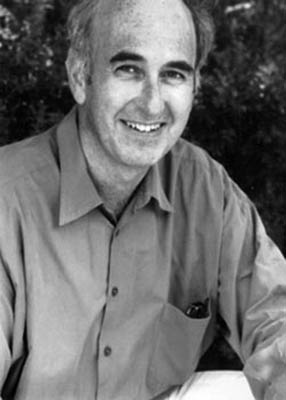Getting Personal with Phillip Lopate
The Influential Essayist Visits SBCC

Phillip Lopate has novels, poetry, film criticism, and countless essays to his credit; one can legitimately call him a novelist, a poet, a film critic, or an essayist. But what does he call himself?
“I think of myself as a storyteller,” Lopate said over the phone from his New York home. “In the essays, I’m telling the story of how I think about something. I try for honesty and humor, so certainly candor is part of it. I try for a kind of worldly irony based on not being naive: disenchantment in a positive sense, you might say. I also place a high value on retrospection, looking backward, trying to figure out what to make of experience.”
To Lopate’s mind, honesty is of prime importance in essays, but it’s not easy to achieve. “We fool ourselves so easily,” he said. “I try to be honest, but I’m always aware of a tendency to rationalize, to put myself in the best light, so that has to be guarded against, as does self-righteousness, defensiveness, and so on. But it’s inevitable; I don’t think you can ever cure yourself of it. The hardest thing to do is to accurately assess your strengths as well as your weaknesses. It’s distorting to pretend that you’re totally inept if you’re not, so you have to somehow tip off the reader to your assets as well as your liabilities without seeming to be bragging. It’s a curiosity about yourself, not smugness and not self-dislike.”
Though he receives the most recognition for his personal essays, Lopate found that his experience with fiction, poetry, and film writing proved invaluable to the formation of his essayistic voice. “The heroic forms are fiction and poetry, and I first wanted to be a fiction writer; I don’t think many adolescents fantasize about becoming essayists. I wrote stories and novels, and then my life got very complicated and difficult and I began writing poetry. After several years, I came at last to the personal essay, which seemed to be a way of combining poetry and fiction, to take from poetry that associate leaping quality and not have to build the arc quite so much the way you do in a short story, but to still have a through line, a kind of plot.”
Not until the publication of Being with Children, a book about his experiences as an experimentally hired writer/teacher in a New York public school in the 1970s, did Lopate realize he could compose personal essays. “I found that I had written a kind of unconscious collection of personal essays, which I only realized when I began to read the great masters of the essay form, like Hazlitt and Montaigne. It may be unfair of me to say this, but it’s a form that young people are not as well-equipped for because it requires a certain amount of experience and reflection. This was a form that had been lying in wait for me all my life.”
Nevertheless, Lopate has not abandoned his novelistic pursuits. Two Marriages, to be published in September, comprises a pair of novellas. “They give me the opportunity to have fun and mischief in ways I can’t always with essays,” Lopate explained. “And for me to investigate certain aspects of marriage, I needed to create a fictional plot. Being married puts a certain limit on how much I can write about marriage-you don’t want to get your head handed to you, you know?”
4•1•1
Phillip Lopate will be reading on Friday, February 22, at 7 p.m. at SBCC’s Atkinson Art Gallery. For more information, call 965-0581 x2345 or visit creativewriting.sbcc.edu or philliplopate.com.



